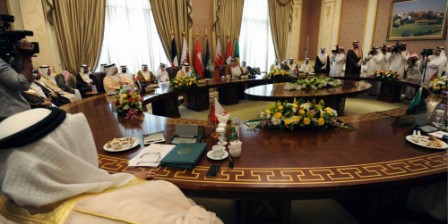Region threatened as Gulf leaders hold summit
Solutions will be hard to find Tuesday when Gulf monarchs hold their annual summit in a region threatened by jihadists and a war in Yemen that has raised tensions with Iran.
“You go down that list, it’s very complex,” Anthony Cordesman, of the Center for Strategic and International Studies in Washington, said of the challenges facing leaders of the oil- and gas-rich region.
The six Sunni-dominated Gulf Cooperation Council states will gather in the Saudi capital, still worried Shiite that Iran might be able to develop an atomic bomb.
Their concerns persist despite assurances from Washington and Paris that an international accord being drafted aims to prevent that.
A framework agreement between Tehran and the United States, France and other major powers limits Iran’s nuclear capabilities in return for a lifting of international sanctions.
French President Francois Hollande will attend the GCC summit, making him the first Western leader to do so since the bloc’s creation in 1981.
The visit will reinforce a deepening of Saudi ties with major powers beyond the United States.
Hollande will join rulers from Bahrain, Kuwait, Oman, Qatar, Saudi Arabia and the United Arab Emirates.
They will gather just over a week before the Gulf leaders travel to traditional ally Washington. President Barack Obama called that meeting in a bid to allay their fears over any US rapprochement with Iran, and to brainstorm on reducing regional conflicts.
Most Gulf states support a US-led coalition bombing jihadists from the Islamic State extremist group in Syria and Iraq since last year.
IS has seized swathes of territory in the two countries, and has threatened Saudi Arabia.
Last month the kingdom said nearly 100 jihadists, mostly linked to IS, have been arrested and several plots foiled, including one against the US embassy.
Riyadh organised its own coalition this year in an effort to stop the advance of Iran-backed Shiite rebels in neighbouring Yemen.
But pro- and anti-government forces continue battling in Yemen’s second city of Aden, aid groups warn over the humanitarian situation, and Al-Qaeda has seized territory in the resulting chaos.
Riyadh feared the Huthi rebels would take over all of Yemen and move it into Iran’s orbit.
Oman is the only Gulf state outside of the coalition which has bombed the rebels daily since March 26 to support the exiled government of President Abedrabbo Mansour Hadi.
Related Posts

